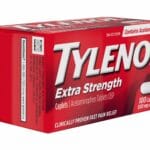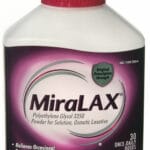Ever caught a whiff of something seriously funky in the bathroom? If your poop smells like ammonia, it’s a sign worth investigating. While an occasional odd smell isn’t usually a big deal, a persistent ammonia odor could indicate something’s amiss in your gut. This guide helps you decode that ammonia-like smell, exploring potential causes, offering practical solutions, and advising when to seek medical attention. Let’s get to the bottom of this smelly situation and get your digestion back on track.
Understanding Ammonia and Stool Odor
Have you noticed a potent ammonia scent after a bowel movement? While not always a major red flag, consistently smelling ammonia in your stool warrants further investigation. This pungent smell suggests excess ammonia in your waste, offering clues about your diet, gut health, or a potential underlying medical condition.
The Ammonia Connection
Ammonia is a natural byproduct of protein breakdown. Normally, your body efficiently converts ammonia to urea, which is filtered by your kidneys and excreted in urine. Occasionally, this process can be disrupted, leading to excess ammonia being expelled through your bowels.
Potential Causes: A Diagnostic Self-Assessment
Several factors can contribute to ammonia-smelling stool. Consider these questions to assess your situation:
Dietary Habits
- Protein Intake: Do you consume a high-protein diet? Excess protein may overwhelm your body’s ammonia processing capacity.
- Hydration: Are you adequately hydrated? Dehydration concentrates waste, intensifying odors like ammonia.
Gut Health
- Recent Antibiotic Use: Have you recently taken antibiotics? Antibiotics can disrupt the gut’s delicate bacterial balance, potentially leading to increased ammonia production.
- Digestive Issues: Do you experience bloating, gas, or other digestive problems? These may suggest a gut microbiome imbalance.
- Bacterial Infections: Infections in the gastrointestinal tract can also contribute to ammonia-like odors.
Underlying Conditions
- Liver or Kidney Conditions: Do you have existing liver or kidney conditions? These can impair ammonia processing, resulting in its excretion through stool. Worried about that pungent ammonia smell? Learn everything you need to know about proper pump and clean septic tank maintenance and eliminate those unpleasant odors.
- IBD or Malabsorption: Have you been diagnosed with Inflammatory Bowel Disease (IBD), celiac disease, or malabsorption syndromes? These conditions can disrupt digestion and contribute to ammonia in stool.
- Exocrine Pancreatic Insufficiency (EPI) can also alter stool composition and result in an ammonia-like smell.
Putting the Pieces Together: Other Factors
- Certain medications, though less common, might affect stool odor.
- Ongoing research continues to explore the complexities of the gut microbiome and its influence on stool characteristics.
| Potential Cause | Description |
|---|---|
| High Protein Intake | Excess protein breakdown leads to increased ammonia production in the gut. |
| Dehydration | Concentrated waste amplifies existing odors, including those resembling ammonia. |
| Gut Microbiome Imbalance | Disruptions in gut bacteria balance due to antibiotics, infections, or other factors may increase ammonia production. |
| Liver or Kidney Issues | Impaired function can lead to increased ammonia in the body and its excretion in stool. |
| IBD, Celiac Disease, EPI | These conditions can alter digestion and contribute to changes in stool odor, including an ammonia-like smell. |
When to Seek Medical Advice
While dietary factors or temporary gut imbalances are often the cause, persistent ammonia-smelling stool, especially with other symptoms, warrants medical evaluation. Consult a healthcare professional if you experience:
- Persistent ammonia odor for more than a few days
- Severe abdominal pain
- Changes in stool consistency or color (blood in stool)
- Unexplained weight loss
- Persistent fatigue
- Nausea or vomiting
- Jaundice (yellowing of skin and eyes)
- Fetor hepaticus (a musty or sweet breath odor)
Solutions and Prevention: Taking Control of Your Gut Health
Addressing Specific Causes
- High-Protein Diet: Moderating protein intake can reduce ammonia production.
- Dehydration: Increase fluid intake, especially water, to prevent waste concentration.
- Gut Imbalance: Probiotics may help restore a healthy gut flora. Some research suggests specific strains might be more effective, but more research is needed.
- Underlying Conditions: Medical intervention is crucial for managing conditions like IBD, liver disease, or kidney disease.
Preventative Measures
- Balanced Diet: Prioritize fiber-rich foods (fruits, vegetables, whole grains) to support regular bowel movements.
- Hydration: Stay well-hydrated to prevent odor intensification.
- Probiotics: Consider incorporating probiotics to support a healthy gut microbiome. Research continually investigates the complex role of the microbiome in our health.
- Stress Management: Stress can impact gut health, so managing stress through techniques like exercise or mindfulness may be beneficial.
- Exercise & Sleep: Regular exercise and sufficient sleep are crucial for overall well-being, including digestive health.
Conclusion: Listening to Your Body’s Signals
Paying attention to your body, even seemingly minor changes like stool odor, provides valuable insights into your health. While an occasional ammonia smell isn’t usually concerning, persistent changes, especially with other symptoms, warrant professional medical advice. By understanding the potential causes and adopting proactive strategies, you can take control of your digestive health and address those unpleasant bathroom odors. Don’t hesitate to seek professional guidance; early detection and appropriate intervention are crucial for managing potential health issues.














